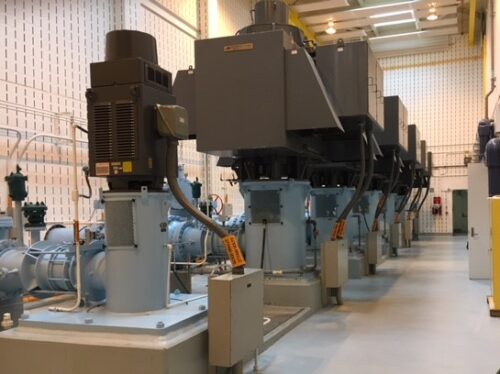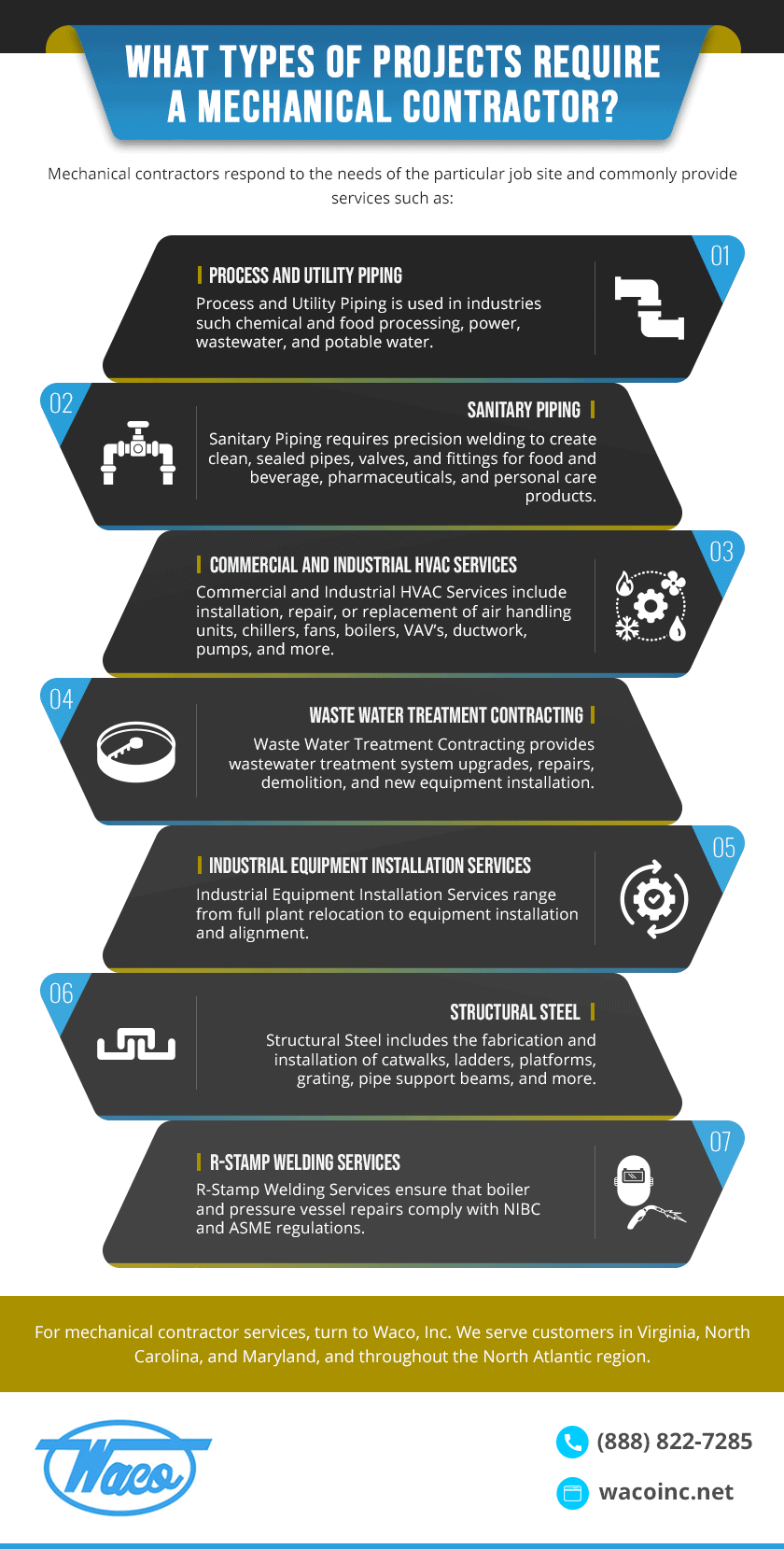What Is the Role of a Mechanical Contractor?

Mechanical contractors oversee mechanical construction, replacement, and repair projects in a range of industries. Their responsibilities vary depending on the project, but mechanical contractors are often in charge of supervising other mechanical workers, scheduling subcontractors, and making sure mechanical systems are installed correctly and within budget. They work in a variety of areas, including process piping, HVAC systems, industrial process equipment, structural steel installation, and more.
The role of a mechanical contractor is essential to the success of a range of projects and day-to-day operations.
What Types of Projects Require Mechanical Contractors ?
From troubleshooting and redesigning faulty systems to installation, maintenance, and repair, mechanical contracting is a multi-faceted job. Mechanical contractors respond to the needs of the particular job site and commonly provide services such as:
- Process and Utility Piping is used in industries such chemical and food processing, power, wastewater, and potable water.
- Sanitary Piping requires precision welding to create clean, sealed pipes, valves, and fittings for food and beverage, pharmaceuticals, and personal care products.
- Commercial and Industrial HVAC Services include installation, repair, or replacement of air handling units, chillers, fans, boilers, VAV’s, ductwork, pumps, and more.
- Waste Water Treatment Contracting provides wastewater treatment system upgrades, repairs, demolition, and new equipment installation.
- Industrial Equipment Installation Services range from full plant relocation to equipment installation and alignment.
- Structural Steel includes the fabrication and installation of catwalks, ladders, platforms, grating, pipe support beams, and more.
- R-Stamp Welding Services ensure that boiler and pressure vessel repairs comply with NIBC and ASME regulations.
No matter where they work or what kind of machinery or equipment they’re dealing with, mechanical contractors are expected to coordinate work between their team and other contractors while staying on schedule and keeping within the budget. It’s a job that requires creativity, problem-solving and decision-making skills, a high level of organization and time management, and strong communication abilities to ensure clear explanations of tasks.
Mechanical Contractor vs. Mechanical Engineer
It’s important to note the difference between a mechanical contractor and a mechanical engineer. The engineer designs systems and components and oversees the production process. The contractor takes over at that point to install the system or component for a client. Both roles contribute to the success of a project, and it’s important to have highly-skilled, experienced professionals in each of those positions.
Mechanical Contracting Services from Waco, Inc.
Founded in 1963, Waco, Inc. has grown to incorporate a wide range of products and services. Over the years, we have served a number of industries with mechanical and environmental contracting services, and we’ve had the pleasure of completing a variety of complex projects for prominent Fortune 500 companies.
With locations in Virginia, North Carolina, and Maryland, we offer mechanical contracting solutions throughout the Mid-Atlantic region with a focus on productivity, safety and regulatory compliance, adherence to schedules and budgets, and professional customer care. To learn more about mechanical contracting and what we can do for you, contact us or request a quote.



